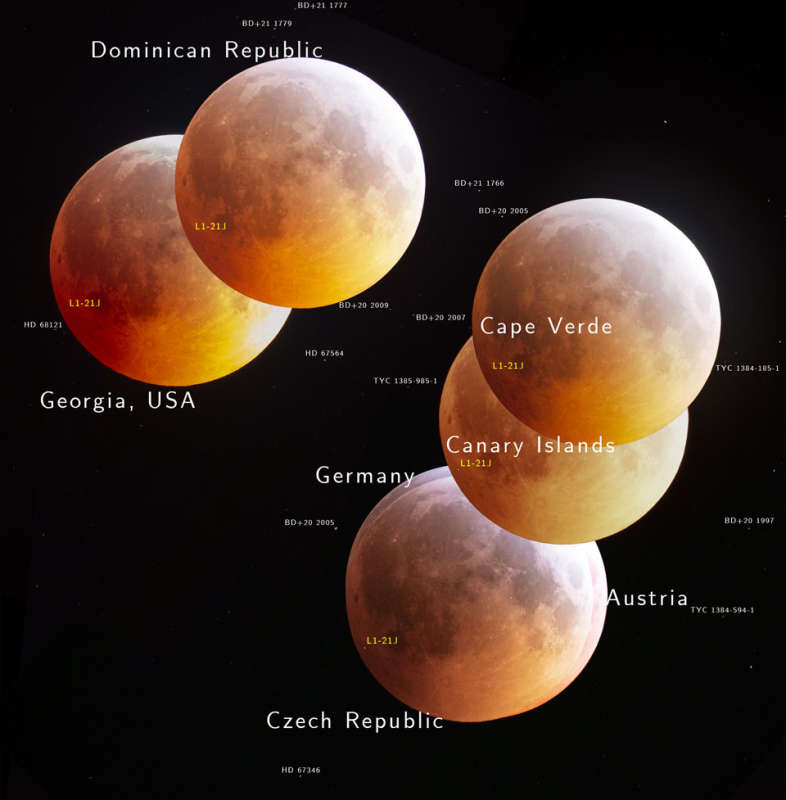 |
Астронет: Астрономическая картинка дня Лунное затмение с разных точек зрения http://variable-stars.ru/db/msg/1607713/eng |
Credit & Copyright: F. Pichardo,
G. Hogan,
P. Horцlek,
F. Hemmerich,
S. Schraebler,
L. Haеpl,
R. Eder;
Processing & Copyright : Matipon Tangmatitham; Text: Matipon Tangmatitham (NARIT)
Explanation:
Do we all see the same Moon?
Yes, but we all see it differently.
One difference is the apparent location of the Moon against background
stars -- an effect known as parallax.
We humans use the parallax between our eyes to judge depth.
To see lunar parallax, though,
we need eyes placed at a much greater separations -- hundreds to thousands of kilometers
apart.
Another difference is that observers around the Earth all see a slightly different
face of our spherical Moon -- an effect known as libration.
The featured image is a composite of many views across the Earth,
as submitted to
APOD, of the
total
lunar eclipse of 2019 January 21.
These images are projected against the same background stars to illustrate both effects.
The accurate superposition of these images was made possible by a serendipitous meteorite impact on the Moon during the lunar eclipse, labeled
here L1-21J
-- guaranteeing that these submitted images were all taken within a split
second.
Processing & Copyright : Matipon Tangmatitham; Text: Matipon Tangmatitham (NARIT)
Authors & editors:
Robert Nemiroff
(MTU) &
Jerry Bonnell
(USRA)
NASA Web Site Statements, Warnings,
and Disclaimers
NASA Official: Jay Norris.
Specific
rights apply.
A service of:
LHEA at
NASA /
GSFC
& Michigan Tech. U.
